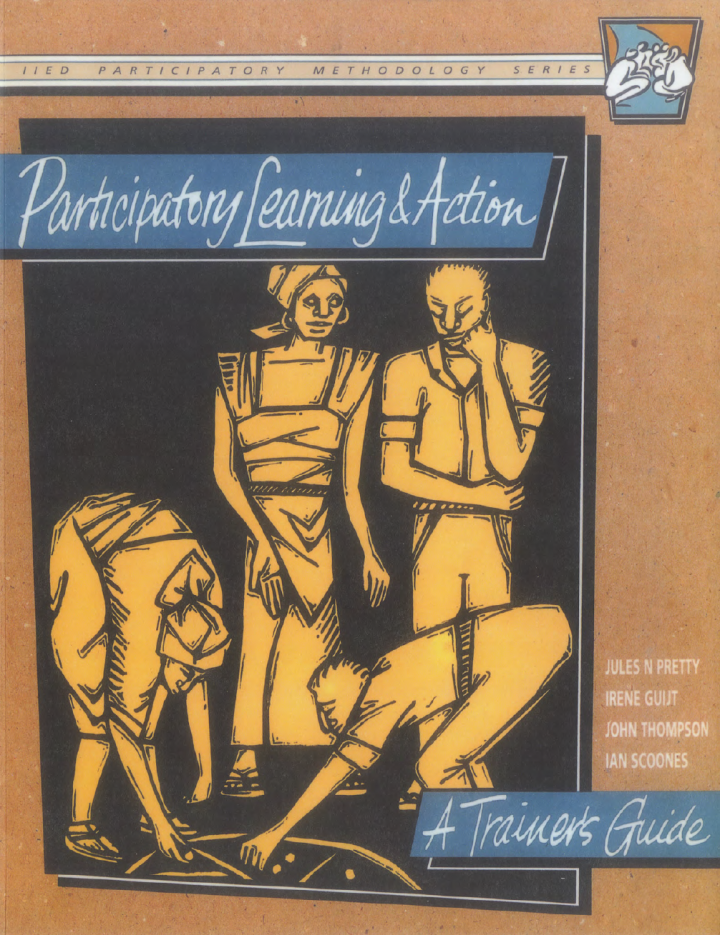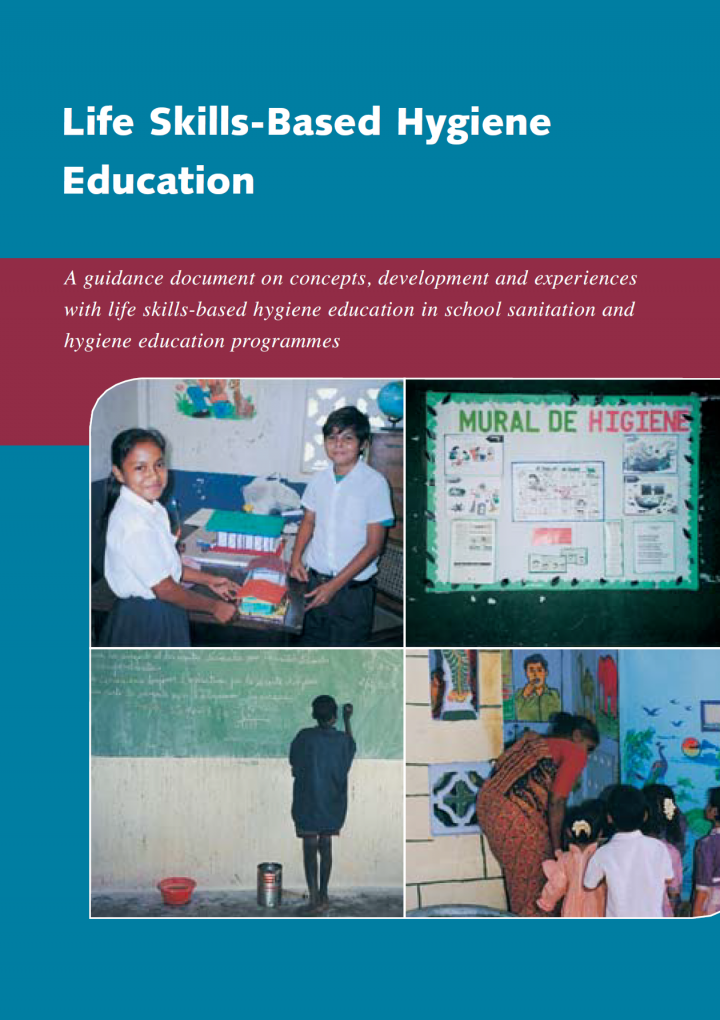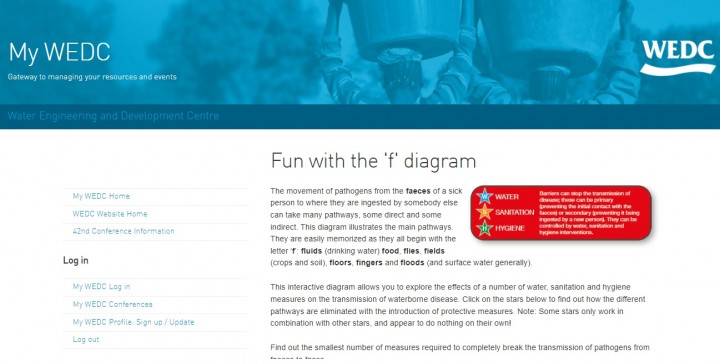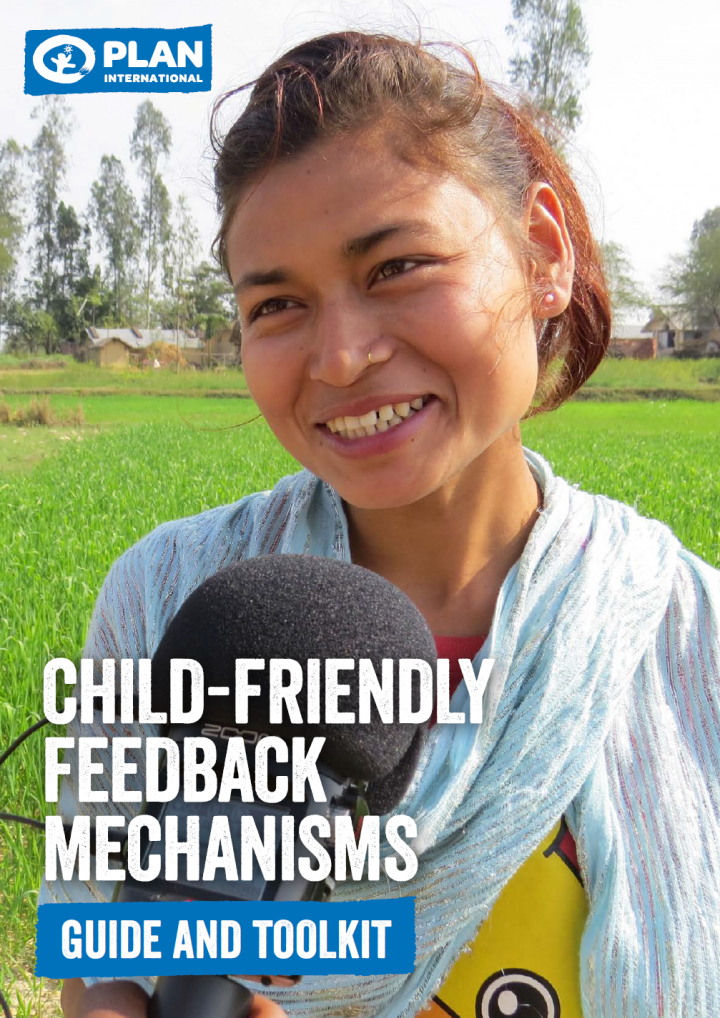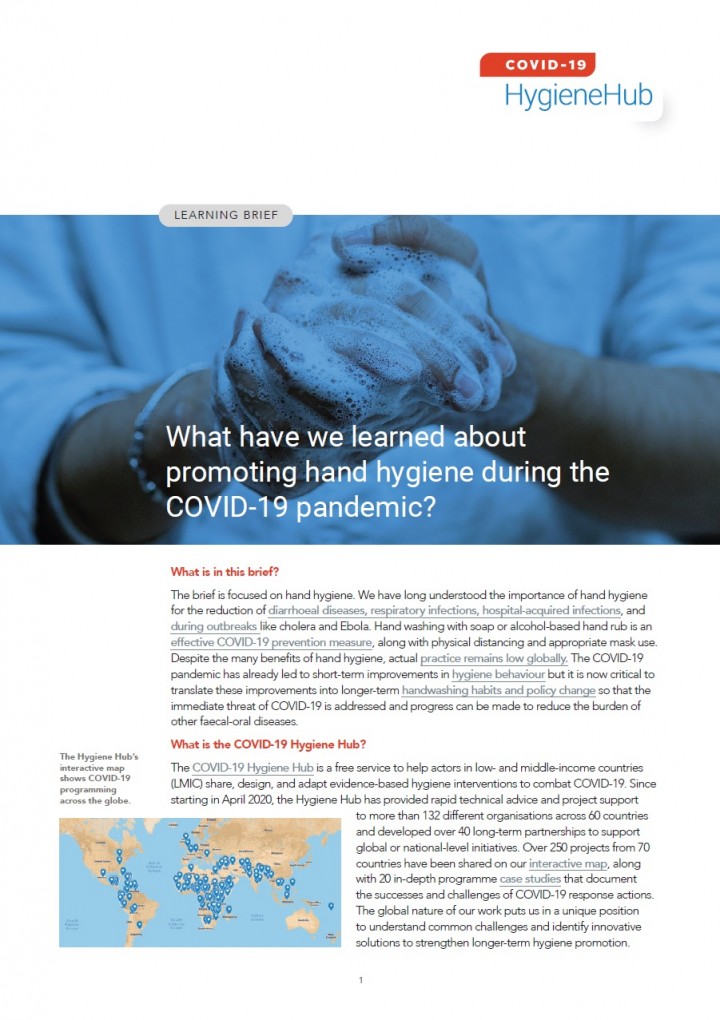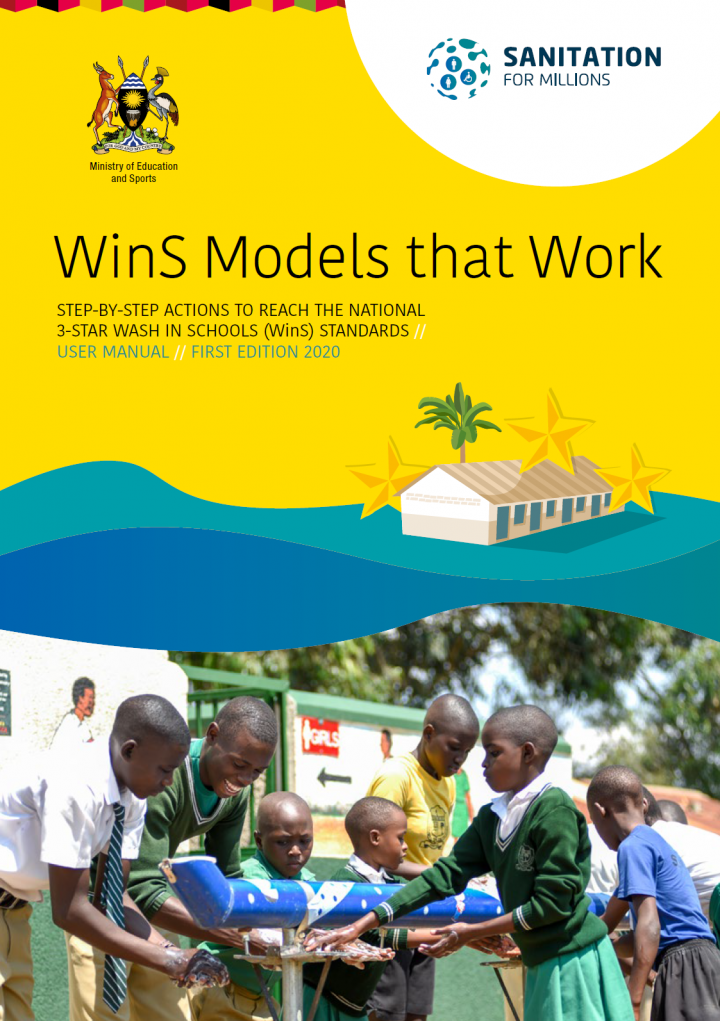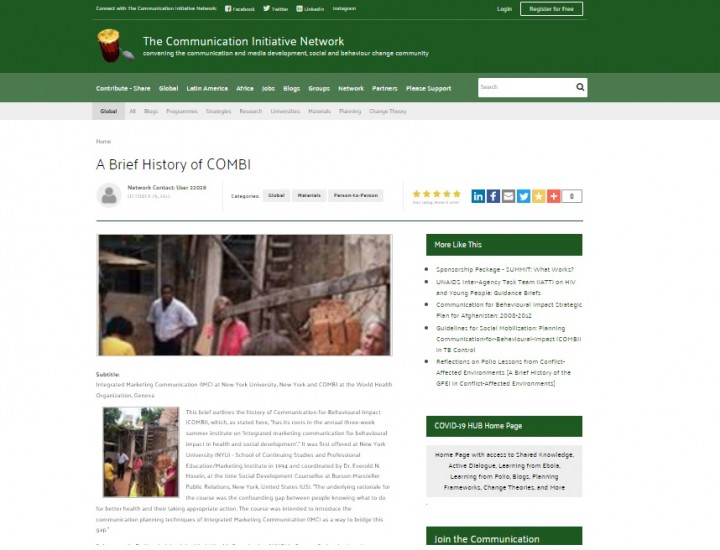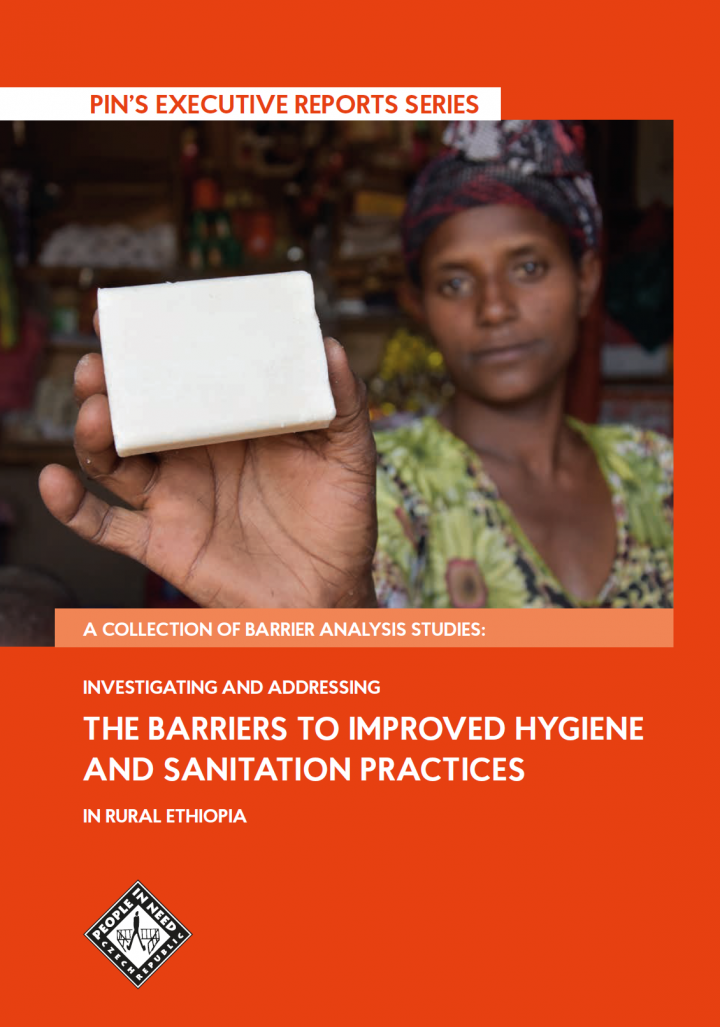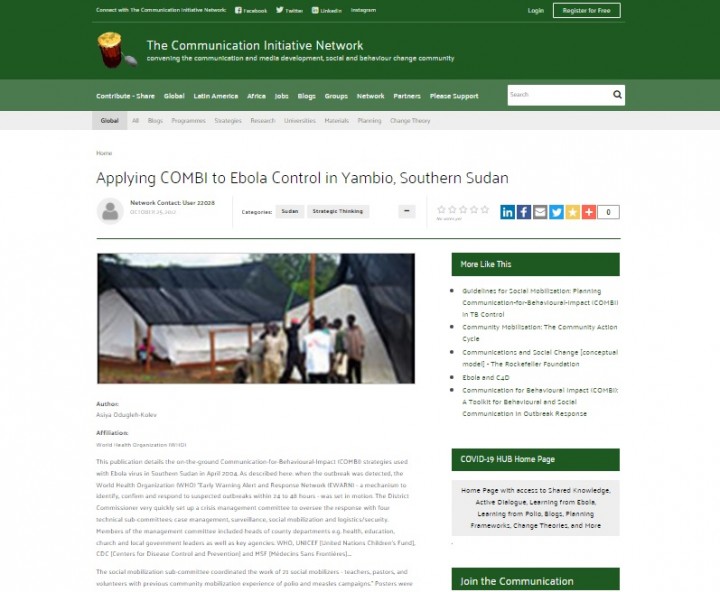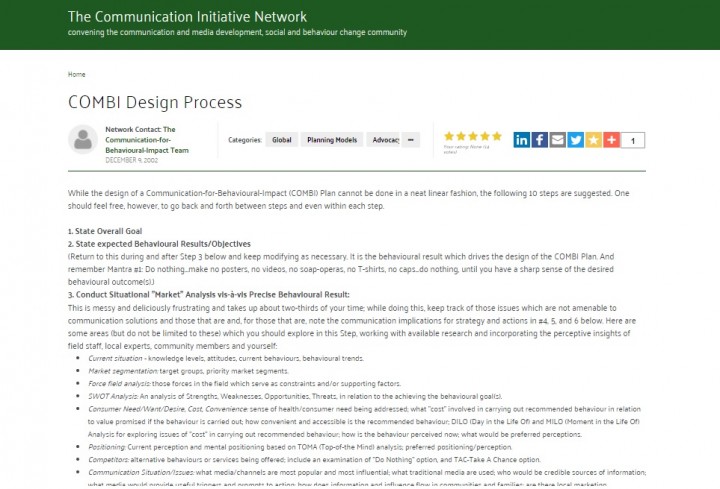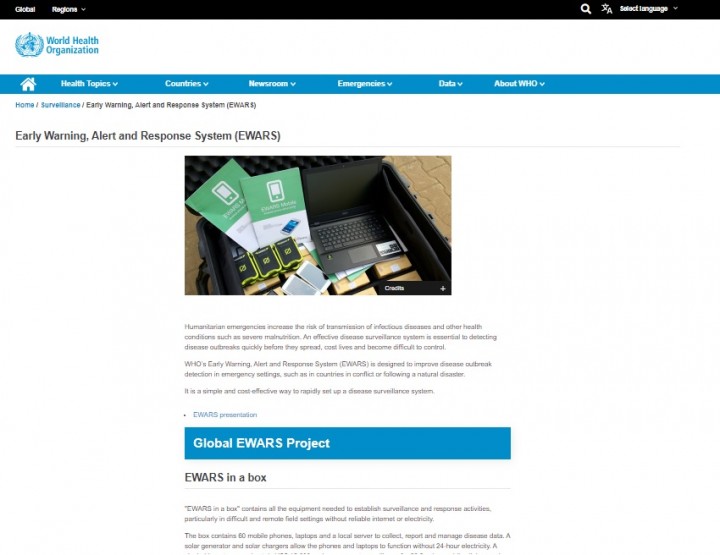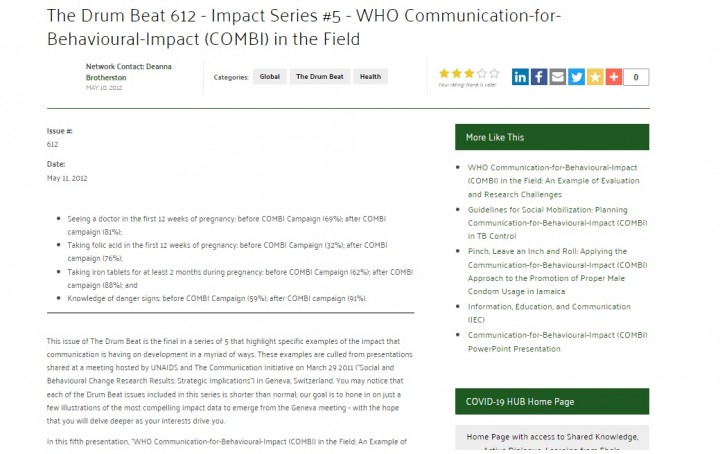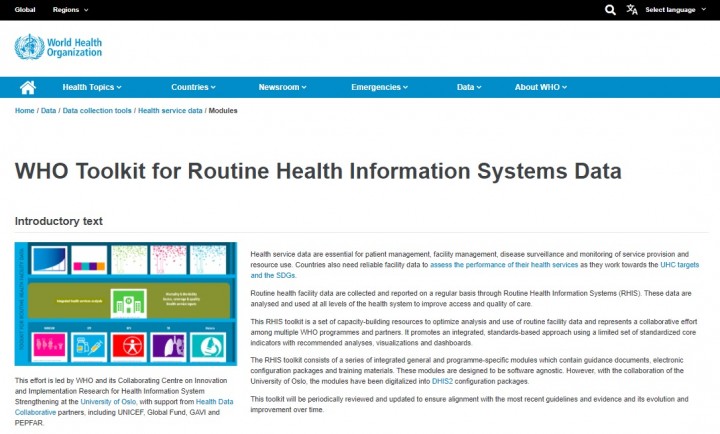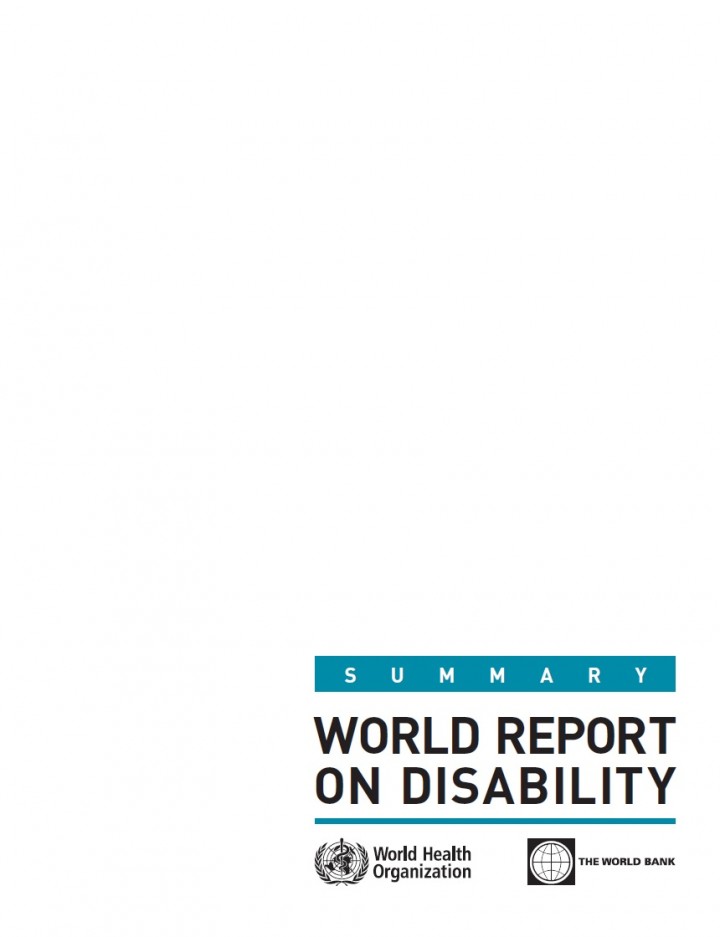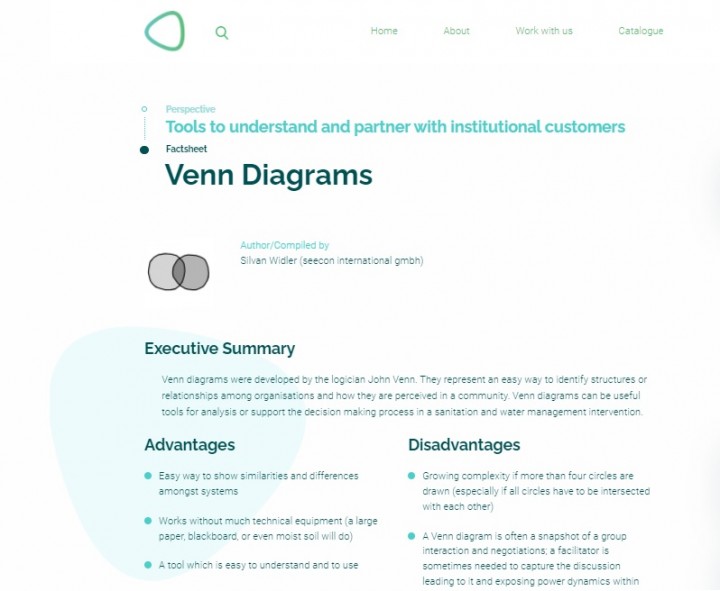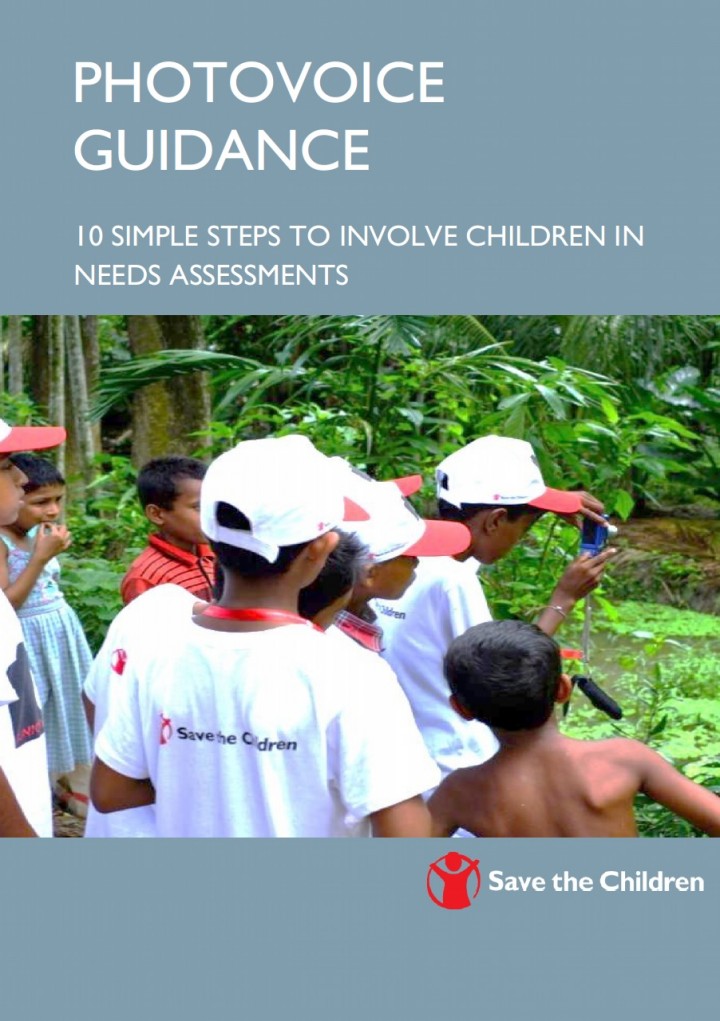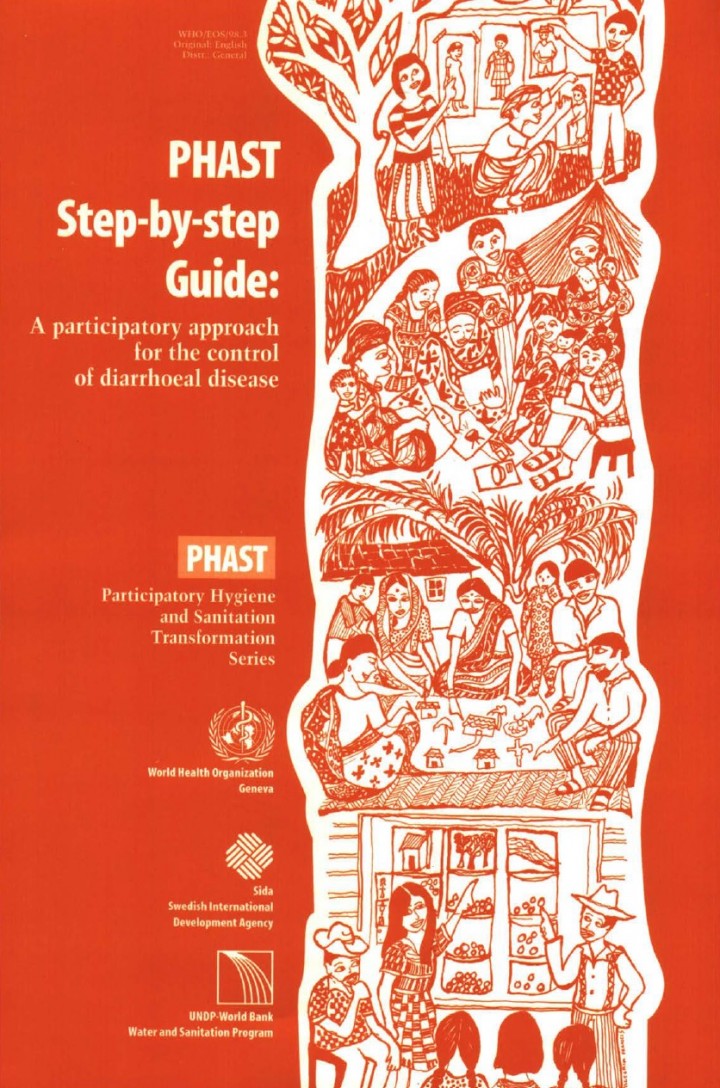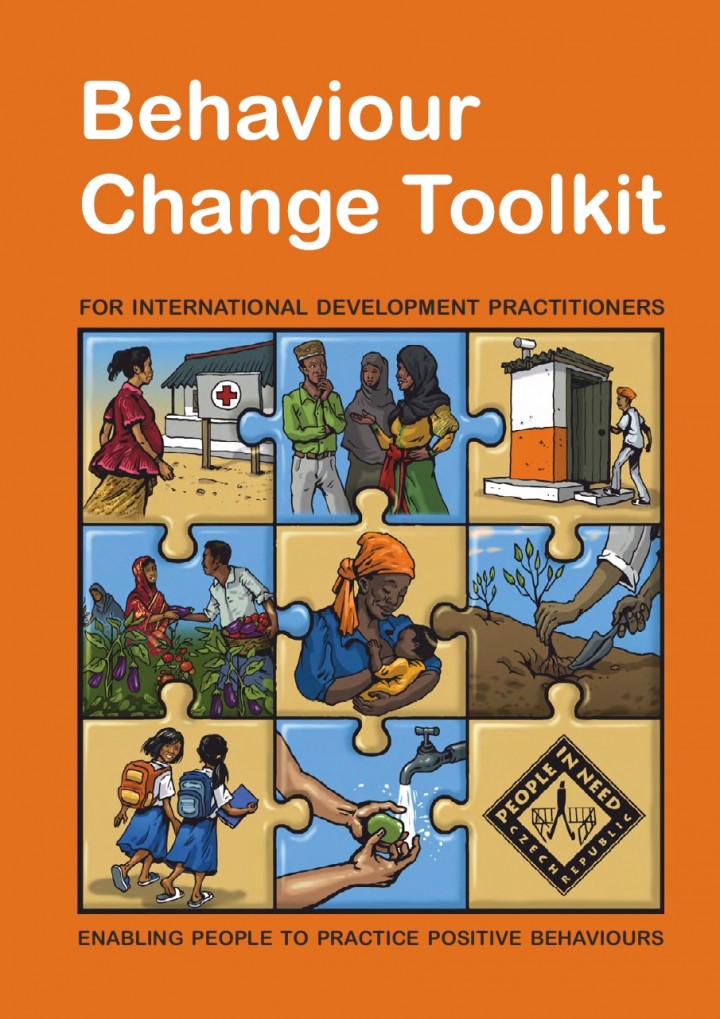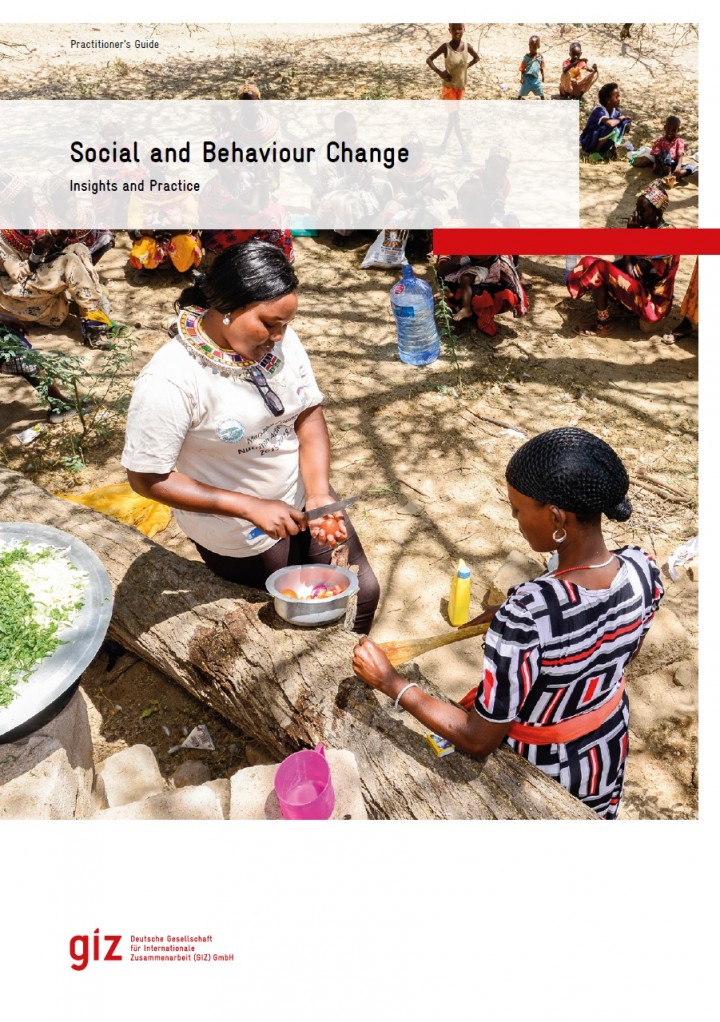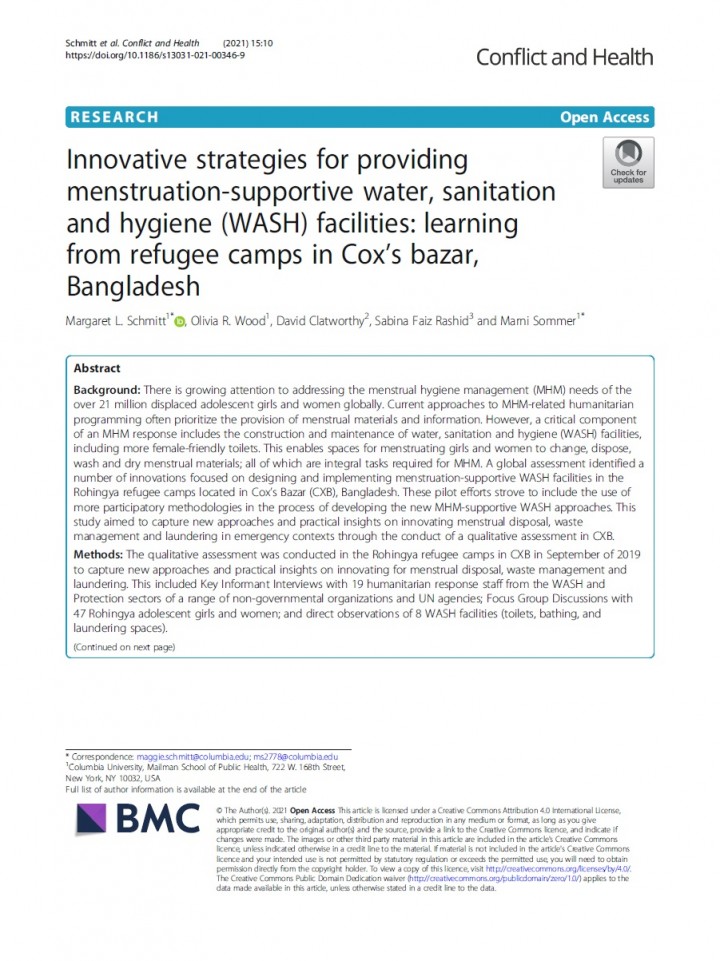Pretty, J.N., Guijt, I., Thompson, J., Scoones, I. (1995) Participatory Learning and Action. A Trainer’s Guide.
Designed for both experienced and new trainers who have an interest in training others in the use of participatory methods, whether they are researchers, practitioners, policy-makers, villagers or trainers. The guide: provides a comprehensive background to the principles of adult learning; focuses on the facilitation skills necessary for effective training; describes group dynamics and how to build interdisciplinary teams; summarises the principles of participatory learning […]
Postma, L., Getkate, R., van Wijk, C. (204) Life Skills-Based Hygiene Education.
Life skills-based hygiene education offers teachers the opportunity to help children obtain life skills by addressing hygiene issues. IRC is pleased to present this guidance document for the planning and development of life skills based education. It was prepared with financial support from UNICEF. It builds among others on the outcomes of the first life skills-based hygiene education workshop organised in New York and on […]
WEDC (0) Fun with the ‘F’ Diagram
The movement of pathogens from the faeces of a sick person to where they are ingested by somebody else can take many pathways, some direct and some indirect. This diagram illustrates the main pathways. They are easily memorized as they all begin with the letter ‘f’: fluids (drinking water) food, flies, fields (crops and soil), floors, fingers and floods (and surface water generally). This interactive diagram […]
Plan International (2018) Child Friendly Feedback Mechanisms: Guide and Toolkit.
The purpose of this guide is to support Plan International and its partners in developing or strengthening child friendly feedback mechanisms in humanitarian settings. The step-by-step guidance and accompanying tools help humanitarian teams to design and implement feedback mechanisms in collaboration with children, young people and communities.
White, S. (2020) Global Handwashing Day Report: What Have we Learned About Promoting Hand Hygiene During the COVID-19 Pandemic COVID-19 Hygiene Hub
The brief is focused on hand hygiene. We have long understood the importance of hand hygiene for the reduction of diarrhoeal diseases, respiratory infections, hospital-acquired infections and during outbreaks like cholera and Ebola. Hand washing with soap or alcohol-based hand rub is an effective COVID-19 prevention measure along with physical distancing and appropriate mask use. Despite the many benefits of hand hygiene, actual practice remains […]
Pizzacalla, K., Nantume, G. (2019) Guide to WASH in Schools. WinS Models that Work.
Government reports from 2016 and 2017 identified that Ugandan schools are not meeting the national standards for water, sanitation and hygiene (WASH) in schools (WinS). For this reason, in 2017, the Ministry of Education and Sports adopted the Three Star Approach for WASH in Schools. The Three Star Approach (TSA) was developed by GIZ and UNICEF and has been implemented in countries around the globe. […]
PIN (2017) The Barriers to Improve Hygiene and Sanitation Practices in Rural Ethiopia. People in Need.
One of the main objectives of development practitioners is to enable people to adopt and practice positive behaviours that help them to improve the quality of their lives. Development projects frequently make assumptions about why people do not follow the positive behaviors these interventions promote. However, such assumptions are often wrong and decrease the effectiveness of well-intended interventions. People in Need (PIN) believes that the […]
WHO (0) Early Warning, Alert and Response Systems (EWARS)
Humanitarian emergencies increase the risk of transmission of infectious diseases and other health conditions such as severe malnutrition. An effective disease surveillance system is essential to detecting disease outbreaks quickly before they spread, cost lives and become difficult to control. WHO’s Early Warning, Alert and Response System (EWARS) is designed to improve disease outbreak detection in emergency settings, such as in countries in conflict or […]
WHO (0) WHO Communication-for-Behavioural Impact (COMBI) in the Field Impact Series #5
WHO (0) WHO Toolkit for Routine Health Information Systems Data
Health service data are essential for patient management, facility management, disease surveillance and monitoring of service provision and resource use. Countries also need reliable facility data to assess the performance of their health services as they work towards the UHC targets and the SDGs. Routine health facility data are collected and reported on a regular basis through Routine Health Information Systems (RHIS). These data are analysed […]
WHO, World Bank (2011) World Report on Disability Summary
The first ever World report on disability, produced jointly by WHO and the World Bank, suggests that more than a billion people in the world today experience disability. People with disabilities have generally poorer health, lower education achievements, fewer economic opportunities and higher rates of poverty than people without disabilities. This is largely due to the lack of services available to them and the many obstacles […]
Widler, S. (0) Venn Diagrams Tools to understand and partner with institutional customers. Factsheet
Skovdal, M., Newton, J., Rumi, R. U. (2014) Photovoice Guidance 10 Simple Steps to Deliver and Facilitate Children's Participation in Needs Assessments
Photovoice is a participatory action research methodology that enables people to identify, represent and enhance their communities and life circumstances through photography. It is a process that "entrusts cameras to the hands of people to enable them to act as recorders, and potential analysts for social action and change, in their own communities.
Sawyer, R., Simpson-Hérbert, M., Wood, S. (1998) PHAST Step-by-Step Guide A Participatory Approach for the Control of Diarrhoeal Disease
Schmied, P. (2017) Behaviour Change Toolkit for International Development Practitioners Enabling People to Practice Positive Behaviours
This concise and practical toolkit is designed to give development practitioners the know-how they need to understand people's behaviours and to help them in designing and implementing effective behaviour change strategies. It highlights how behaviour change is key to addressing many development issues such as child mortality, food insecurity, lacking education, and gender inequality, and offers practical and easy-to-read guidance on how to go about […]
Schmied, P. (2019) Social and Behaviour Change Insights and Practice
This document will help you to understand: what is social and behaviour change (SBC) what drives human behaviour (a few key things; no one knows it completely!), step by step, how you can integrate SBC into the various stages of your intervention, starting from the design to its final evaluation, where can you find the most helpful tools, guidance, examples and other resources.
Schmitt, M.L., Wood, O.R., Clatworthy, D., Rashid, S. F., Sommer, M. (2021) Innovative Strategies for Providing Menstruation-Supportive Water, Sanitation and Hygiene (WASH) Facilities: Learning from Refugee Camps in Cox’s Bazar, Bangladesh
There is growing attention to addressing the menstrual hygiene management (MHM) needs of the over 21 million displaced adolescent girls and women globally. Current approaches to MHM-related humanitarian programming often prioritize the provision of menstrual materials and information. However, a critical component of an MHM response includes the construction and maintenance of water, sanitation and hygiene (WASH) facilities, including more female-friendly toilets. This enables spaces […]
